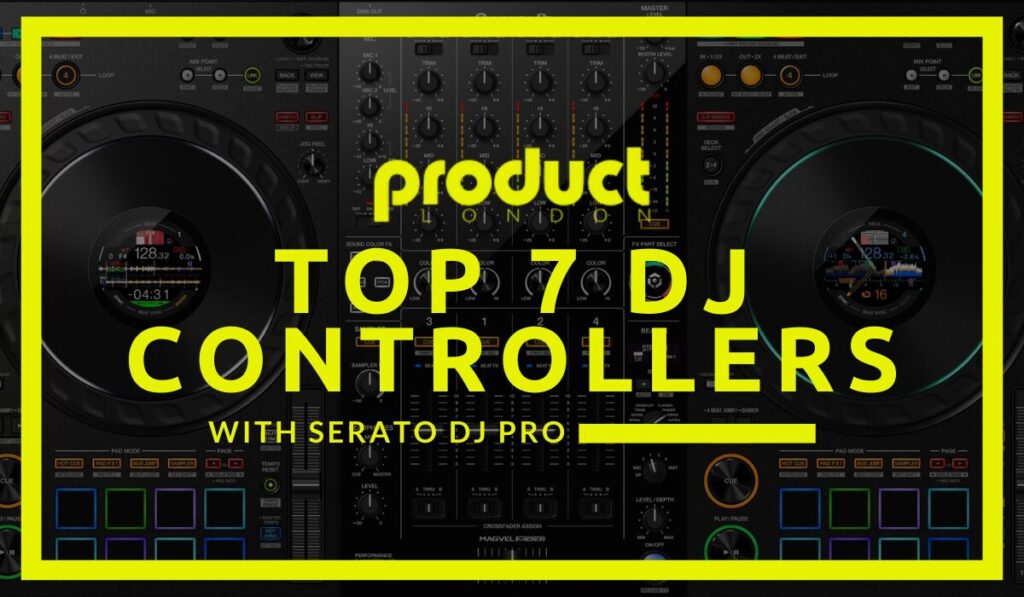For optimal DJing, accessing quality music from diverse sources is key. Begin with mainstream download stores like Beatport and iTunes for extensive catalogs. Specialist platforms such as Traxsource and Bandcamp offer exclusive tracks, ideal for niche genres. DJ record pools provide subscription-based access to vast, curated music libraries tailored for professionals. Streaming services, including Beatport Streaming and TIDAL, facilitate real-time music integration with DJ software. Finally, meticulously building and managing a music library guarantees track versatility and adaptability during performances. Explore these avenues further to enrich your DJ music collection and enhance your professional capabilities.
Key Takeaways
- Explore subscription-based DJ record pools for exclusive music access tailored for DJing needs.
- Utilize specialist download platforms like Traxsource and Bandcamp for unique, underground, and independent tracks.
- Integrate streaming services with DJ software for real-time music access during live performances.
- Purchase music from mainstream download stores like Beatport and Amazon for a wide genre selection.
- Regularly engage with DJ communities for insights into music trends and track curation.
Mainstream Download Stores
In the domain of DJing, mainstream download stores serve as pivotal resources for acquiring music in a reliable and efficient manner. Among these, Beatport stands as a frontrunner, particularly for electronic dance music enthusiasts. With over 9 million tracks, it is tailored to meet the demands of DJs by seamlessly integrating with DJ software, thereby enhancing the user experience during live performances.
Furthermore, the growing emphasis on cloud-based music libraries in DJ software aligns well with Beatport’s offerings, guaranteeing DJs have mobile access to their music collections. Beatport’s focus on trending genres guarantees that DJs remain at the forefront of the evolving musical landscape.
iTunes Store, part of Apple Music, offers an extensive catalog of over 100 million songs, providing a familiar interface for users. While it excels in delivering a broad array of music selections, its offerings may not cater specifically to the niche requirements of dance music.
Conversely, Amazon Music provides a versatile selection of MP3 files at competitive prices, appealing to DJs seeking diversity in their music libraries across various genres.
7digital and HDtracks cater to those prioritizing audio quality. 7digital offers flexible audio formats, particularly favoring the UK market, while HDtracks specializes in high-resolution audio formats like WAV and FLAC, elevating user experiences by guaranteeing superior sound quality during performances.
Specialist Download Platforms
Specialist download platforms serve as invaluable resources for DJs seeking music beyond mainstream offerings, catering to niche genres and unique needs. These platforms provide access to exclusive releases and a wealth of tracks that are not readily available through traditional channels.
Traxsource, for instance, is a preeminent destination for house music enthusiasts, offering exclusive tracks from a myriad of underground labels. Its focus on niche genres guarantees DJs can discover fresh sounds that resonate with their audiences.
To maintain a vibrant and engaging music library, DJs must also explore timeless classics alongside contemporary hits, guaranteeing their selection stays relevant and appealing.
Beatport, with its extensive catalog exceeding 9 million tracks, is a powerhouse for electronic dance music. It not only offers exclusive releases but also integrates seamlessly with DJ software, providing tools like DJ charts that enhance the performance experience.
Bandcamp stands out by allowing independent artists to sell directly to fans, offering an attractive 82% revenue share, which encourages a rich repository of unique and niche tracks ideal for DJs seeking originality.
Juno Download caters to a diverse audience with its vast array of genres, providing both lossy and lossless formats that meet various performance needs.
Meanwhile, Boomkat’s emphasis on underground music and specialty genres makes it a treasure trove for rare and distinctive finds.
DJ Record Pools
DJ record pools stand as essential resources for professional DJs, offering a subscription-based model that grants access to vast libraries of music tailored specifically for DJ use. These pools are crucial in guaranteeing DJs have the latest tracks at their fingertips, often featuring exclusive content such as unique edits and intro versions designed for seamless mixing.
Many DJs also utilize free DJ software like Mixxx or Serato DJ Lite to enhance their performances by integrating these tracks with intuitive interfaces and built-in effects. Notable record pools like DJCity, BPM Supreme, and ZipDJ exemplify this by curating extensive libraries that cater to both contemporary hits and timeless classics.
The subscription benefits are immense, with plans typically ranging from $9 to $90 for several months, contingent on the chosen service and its features. Such subscriptions not only provide access to high-quality audio files but also guarantee DJs remain at the forefront of musical trends.
The exclusivity of content is further bolstered by the requirement for users to prove their DJing activity or residency, safeguarding against unauthorized distribution and guaranteeing that the material reaches legitimate practitioners.
In essence, DJ record pools are crucial for any serious DJ, offering a treasure trove of music that may not be accessible via mainstream platforms, thereby empowering DJs to craft unparalleled musical experiences.
Streaming Services for DJs
For DJs seeking a dynamic approach to music access, streaming services present an innovative solution by integrating seamlessly with popular DJ software. These cloud-based solutions, such as Beatport Streaming and Beatsource, offer DJs the advantage of accessing extensive music libraries directly within their performance setup.
This integration allows for real-time streaming of tracks, which is vital during live shows where immediate access to a diverse range of music is necessary. DJs can also utilize DJ software like Serato or Traktor for access to Spotify’s extensive music library, enabling them to pull tracks live and adjust on the fly based on audience requests.
TIDAL stands out by offering a vast library with high-quality audio, catering to DJs who demand superior sound fidelity. This is essential for those who prioritize the auditory experience in their sets. Meanwhile, SoundCloud Go+ opens doors to exclusive remixes and independent tracks, enabling DJs to explore unique content not typically found on mainstream platforms.
A notable feature of Beatport LINK is its ability to cache the entire Beatport catalog for offline use. This guarantees DJs have a reliable music selection at their disposal, even in venues with unstable internet connections.
However, DJs must be cognizant of licensing restrictions, as platforms like Spotify and Apple Music lack compatibility with DJ hardware, limiting their applicability in live performances.
Building a Music Library
A well-curated music library is an essential asset for any professional DJ, serving as the backbone of their performance repertoire. Effective track curation and meticulous library organization are vital to guaranteeing that the music collection is both versatile and adaptable.
Prioritizing high-quality tracks intended specifically for DJing over mere quantity is fundamental to enhancing the library’s relevance. Regularly engaging with DJ communities can provide insights into current trends and genre exploration, keeping the library updated and in tune with audience preferences. DJs should regularly evaluate and purge unused tracks, adhering to a critical listening process before making additions or deletions.
To maintain a dynamic and responsive music library, DJs should consider the following:
- Acquire multiple track versions: Collect club, radio, and clean edits to cater to diverse audience preferences and event requirements.
- Organize digital files meticulously: Familiarize yourself with file locations, employ effective backup methods, and manage metadata like BPM, artist names, and album artwork.
- Explore new music weekly: Dedicate time to discover fresh tracks via platforms such as Bandcamp, Beatport, and DJ pools.
- Balance exploration with appreciation: Regularly revisit existing tracks to fully utilize your collection’s potential.
- Maintain a streamlined collection: Regularly purge and refine to guarantee your library remains efficient and relevant.
Frequently Asked Questions
How Do DJS Get Their Music?
DJs employ diverse music sourcing strategies, prioritizing legal considerations. They utilize digital download stores, subscription-based record pools, and streaming services. Additionally, networking with artists and digitizing vinyl collections guarantees a thorough, legally compliant music library for performances.
Where Can I Download Music for DJING?
To download music for DJing, utilize digital platforms like Beatport, Traxsource, and Bandcamp, which offer licensed tracks. DJ Record Pools provide subscription services ensuring legal access to diverse music libraries for seamless integration into DJ software.
Where Should I Get My Music as a DJ?
To curate a diverse collection, DJs should leverage digital crates from music download stores, explore genre-specific record pools, and utilize collaboration platforms. Ensuring proper music licensing is essential, especially when integrating streaming services into live performances.
Where Do DJS Get Their Samples?
DJs source samples from specialized platforms like Splice, Loopmasters, and Sounds.com, offering royalty-free sample packs. Record pools and independent platforms such as DJCity and Bandcamp also provide exclusive, curated sample sources for professional DJ performance and creativity.
Conclusion
In the domain of DJing, acquiring music is paramount to curating exceptional sets. Utilizing mainstream download stores offers access to popular tracks, while specialist download platforms provide niche selections. DJ record pools offer a cost-effective method for obtaining a diverse range of tracks. Streaming services tailored for DJs enable seamless integration into performances. A thorough music library, built through these varied sources, guarantees adaptability and innovation, ultimately enhancing the DJ’s ability to engage and captivate audiences.




